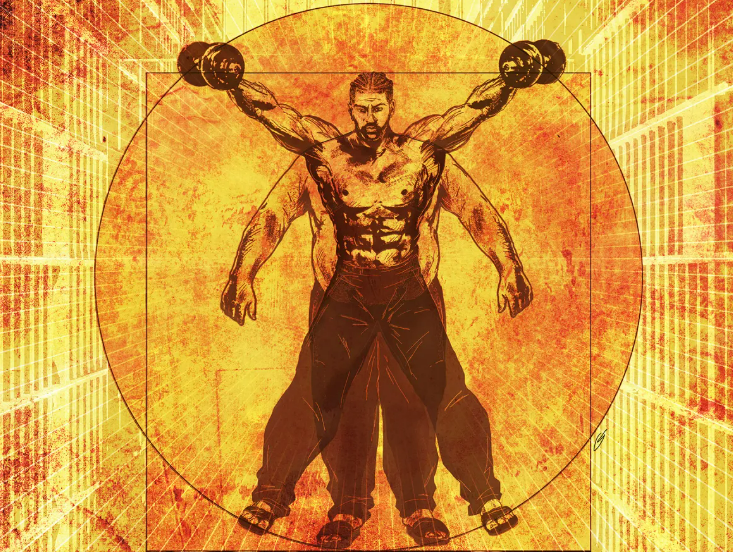Voices of the Incarcerated - How I Regained My Self-Esteem in Prison
"In prison, the only person you need to impress is yourself."

The following essay by Kashawn Taylor, "How I Regained My Self-Esteem in Prison," appeared on the website for the Prison Journalism Project. Excerpts are below.
*****
At first, I couldn’t understand it. Why were these men concerned with their appearance in prison? Who were they trying to impress? It took me several months to uncover their secret, and even longer to believe the hype.
In prison, the only person you need to impress is yourself.
When the judge sentenced me to three years, I was at my heaviest, approaching 200 pounds. I felt a heavy sadness, like a lone boulder or a beached whale. My hair, in which I’d previously taken pride, became nappy and unruly. I had gradually given up on self-care because, frankly, I had given up on the future and on myself.
After transferring to a Level 2, minimum security prison, I noticed a distinct shift. I still saw people who only slept, yelled at their girlfriends on the phone, and ate. But a new breed also caught my eye. These men put effort into their appearance and their presentation.
“What a great waste of time,” I thought. “This is prison, not a beauty contest.” Maybe I was self-conscious, probably a bit jealous. Some of these guys looked great — not movie star-great, but much better than me. They were in shape, working out constantly and receiving haircuts every week. They even disappeared the wrinkles in their tan uniforms, a mysterious kind of witchcraft that still eludes me.
Not only did these men stand out physically. Something about the way they carried themselves cast a golden radiance. Their obvious confidence empowered them, and it showed.
Whatever those men had, I wanted it too.
A saving grace came in the form of a toothless white guy with frosted tips who knew how to braid. He braided my hair in cornrows regularly for a dollar — or two soup packets — until he went home. At that point my bunkie took over, an appointment which recurs every three weeks.
Such a small effort — braiding my hair — gave me a major confidence boost. People thought I looked good, and, eventually, I actually did. I walked with my back a little straighter and my head held higher.
The most daunting step I took towards taking care of myself was asking for help. As a man, that was the most difficult. Society teaches men to hide their true feelings. The only acceptable male emotion is anger. Unlearning those social constructs was essential to my personal growth and healing. I learned that it was OK to feel crappy, it was OK to ask for help, and it was more than OK to express your feelings. I took advantage of professionals and programs designed to equip me with the tools to help myself, and I’m better for it.
Prison is a harrowing journey, but it does not have to beat you down. If you take care of yourself, you, too, can boost your self-esteem. So many men I’ve met in prison have been kind, humane and compassionate.
But there is a quote by the writer Jack Kornfield that comes to mind: “If your compassion does not include yourself, it is incomplete.”
*****
Kashawn Taylor is an incarcerated writer in Connecticut and has written several pieces for the Prison Journalism Project. You can read his full essay, "How I Regained My Self-Esteem in Prison," at the Prison Journalism Project, who aims to bring transparency to the world of mass incarceration from the inside and training incarcerated writers to be journalists, so they can participate in the dialogue about criminal legal reform.










